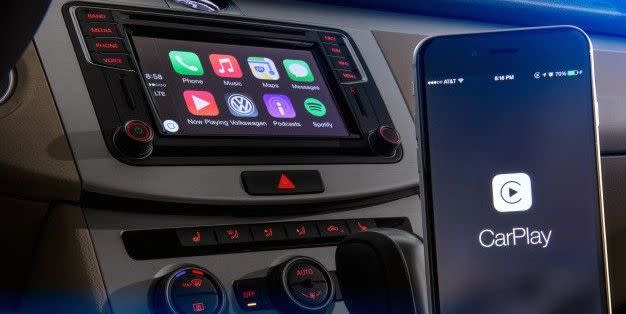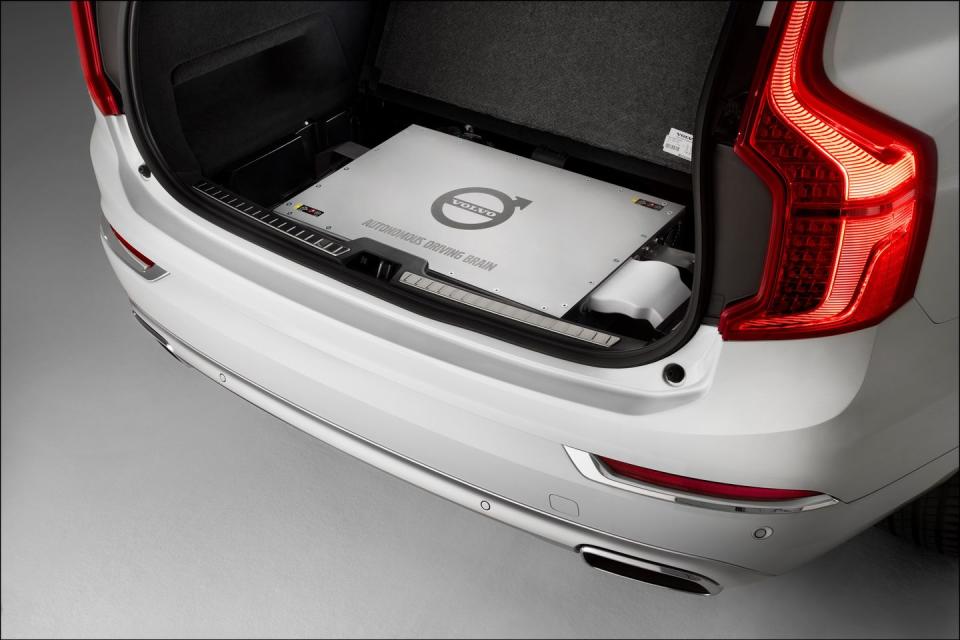Data Privacy Goes the Way of the Carburetor

Cars used to be truly stupid. They had carburetors and crank windows and radios were optional. To start one the driver had to actually insert a metal key into a physical switch and turn it. They had cigarette lighters instead of USB ports, and ashtrays big enough to hold a dachshund. There weren't any computers aboard because computers were bigger than houses and only NASA had them. Yup, cars were ignorant, inert slugs and no one knew anything different.
Dagnabit.
Those antiques are all gone. Either they were crushed and recycled decades ago, or they're now weekend playthings most often found parked on lawns at car shows.
A new car spews out something like 25 gigabytes of data every hour it's running and the carmakers, software powerhouses, mechanics, dealerships, insurance companies, tax and toll collectors and several startups now being sketched out on napkins at a Starbucks in Palo Alto are planning to leverage all that to their advantage. Only the owners and drivers of the cars seem to have no revenue-generation scheme in mind. Should they be worried? And if they are, does it matter?
"There's a couple of ways I'd describe the challenge," explains Joseph Jerome, who is policy counsel for the Center for Democracy and Technology. "There's the way that consumers think about ownership. You pay for something and you drive it off the lot. It is yours. Then there's the ways companies are trying to think about data streams. And that's where you get into disputes between aftermarket and the dealers versus the OEMs. Everybody is trying to get their hands on as much stuff as they can for reasons. To make money or for beneficial reasons. It's a laundry list of stuff. They're also trying to avoid liability issues. They don't want to be blamed when something goes wrong or data is breached."

At a fundamental level, your car is just one more device gathering data on your life. After all, that networked doorbell knows when someone is on the porch, a smart refrigerator can monitor your family's dairy consumption, and that "phone" in your pocket is already tracking your every move, sharing photos, recording your texts and monitoring email. Cars are just one more stream feeding a massive data river.
Part of the problem here is that in order to use technologies such as Apple CarPlay or Android Auto or any software that feeds your choice of music or podcasts or whatever into the car, we all kind of mindlessly agree to densely worded, small-print contracts no one reads and many assume are unimportant anyhow.
"We live in a world where all these boilerplate contracts are binding," says Jerome. "There's a serious information and power asymmetry. When you're buying a vehicle or buying anything, sure you can take your time while you're at the car dealer and read dozens and dozens of pages of documents. But also, at the end of the day you have no real ability to say, 'I don't agree to this,' or 'I'm going to cross out that,' and still drive away with the car."
The United States Constitution is elegantly written, not densely packed, and enumerates many individual rights that the government is prohibited from restricting. But we still live in country where most of us rarely petition the government for redress, don't have much to freely say, and haven't had to worry about self-incrimination. The Bill of Rights is there, and most of us manage to get through our lives without calling upon it to protect us. And while rights that aren't exercised are nice to have in case of an emergency, in day-to-day life they're all but academic.

That in mind, does it matter if Apple or Volvo or Google or Ferrari or Tesla claims access to the data our cars generate? Or if police can employ technology that's not even in your car to track your location? As cars grow more electronically complex and connected, maybe it's okay to stop worrying about being monitored and enjoy the GPS-aided suspension tuning, real-time traffic updates, and infinite song selections. So what if Google knows your favorite strip clubs and which fringe political blogs to which you listen? It's not as if they're actually going to do anything with that information. Right?
Accessing a vehicle's electronic data is more critical to those charged with fixing it. Independent shops depend on diagnostic tools accessing a vehicle's electronic nervous system through onboard diagnostics ports. But at some point, it may be that manufacturers and governments will close off that access as maintenance is contained within ownership, lease or car-sharing agreements.
In June of last year California passed the Consumer Privacy Act which guarantees that state's citizens the right to know what information businesses are collecting from them, the right to opt out of allowing a business to sell their information, the right to have a business delete personal information, and that guarantees the right to receive equal service and pricing from a business whether or not it exercises the rights in other ways. It goes into effect in January 2020 and may become the model for legislation around the country.
On the national level, there have been tentative moves toward a national right to privacy law, but nothing concrete has emerged from Congress. In Europe, the EU has determined that automotive data falls under the General Data Protection Regulations and its privacy provisions.
My sophisticated analysis—based on some reading, some fears, and my generalized conjecture—is that buying a new car today is like signing up for a social media account you don't monitor and aren't sure anyone else is minding either. But in the near term, as 5G communication between vehicles, autonomous operations, and different forms of car ownership develop, buying a car will be like buying a condominium. That is, your privacy and your actions will be limited by the agreements you enter. We'll all become members of the equivalent of a massive, car-based homeowners association (HOA).
Anyone who has lived under an HOA knows that they're run by the people who care enough to show up at the meetings. And that the moment when you realize that your HOA is out to get you, it's already too late to change the rules.
Show up for the meetings. Because otherwise, one day, you may really miss stupid cars.
You Might Also Like

 Yahoo Autos
Yahoo Autos 